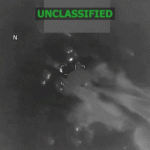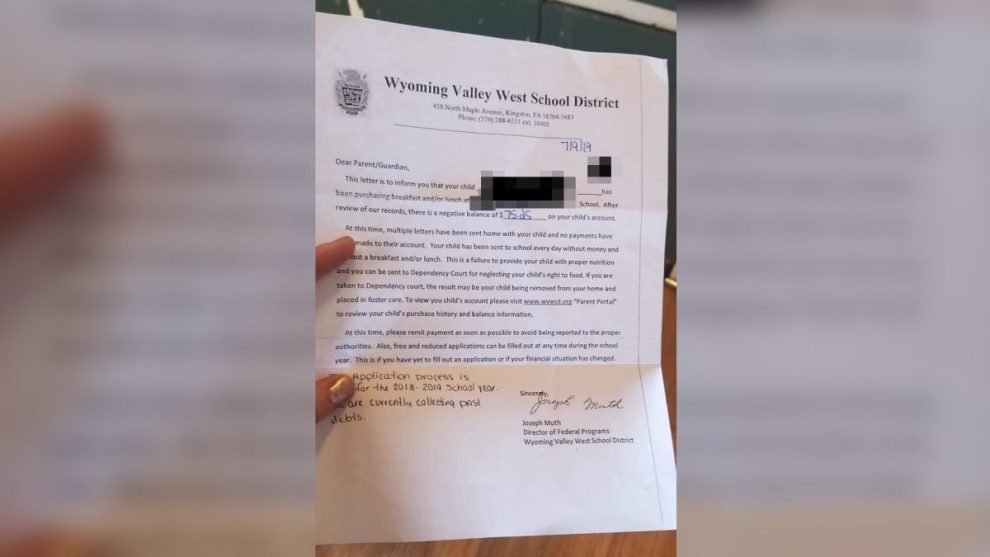The Wyoming Valley West School District in Pennsylvania sent out hundreds of letters this week telling parents who had lunch debt to pay or their children could go into foster care.
The letter, which was reviewed by CNN, told parents that there have been “multiple letters sent home with your child” and that no payments had been made.
“Your child has been sent to school every day without money and without a breakfast and/or lunch,” the letter read. It also said failure to provide children with food could result in parents being sent to Dependency Court.
“If you are taken to Dependency court, the result may be your child being removed from your home and placed in foster care,” the letter read.
CNN has reached out to Wyoming Valley West School District, but has not heard back.
School division says its owed more than $22,000
About 1,000 letters were sent to parents in the district, CNN affiliate WNEP reported, causing an uproar in Luzerne County, near Scranton, and making national headlines.
Wyoming Valley’s Cafeteria Purchase Charging and Insufficient FundsPolicy says nothing about parents potentially going to court or giving up their children. It does say that families with a student account that reaches negative $10 or more will receive “an automated call every Friday until the account” is paid off.
Joseph Muth, the director of federal programs for the school district, was identified by WNEP as the man who wrote the letter. Muth told the affiliate the letter was a “last resort” and that the district is owed more than $22,000 by roughly 1,000 students. Four accounts show parents owe more than $450 each, WNEP reported.
Muth also told the affiliate the school district was considering serving students with delinquent accounts peanut butter and jelly sandwiches.
Because the school division brought up foster care, the incident indirectly brought the Luzerne County Children and Youth Services into the controversy.
Joanne Van Saun, who runs the local agency, told CNN on Saturday she feels her agency was weaponized to threaten families.
“We exist to protect and preserve families. The only time a child is taken out is when they cannot be maintained safely in their home,” she said. “Our agency has helped many children and families with paying rent and buying clothes. We know children do better when they’re with their families.”
Van Saun said the district’s letter made her staff’s job harder because people are usually already angry when they have to deal with her agency.
“We’re really there to help, and not destroy, their family,” she said.
Van Saun did say the relationship between her agency and the school district is usually a good one, but she felt “blindsided” by the letter.
“The way they handled it was totally inappropriate, unnecessary and could’ve easily been resolved through so many different avenues,” she said.
In a letter to the district’s superintendent, Van Saun wrote, “The Luzerne County Children and Youth Foster Care System is NOT utilized to scare families into paying school lunch bills.”
‘Lunch shaming’ hits the headlines
The Pennsylvania district isn’t the first state to face accusations of what’s become known as “lunch shaming.”
A school district in Rhode Island caused an uproar in May when it announced that any students with unpaid balances on their lunch accounts would receive a sunflower seed butter and jelly sandwich until their balance was paid. Yogurt company Chobani then stepped in and paid off a large part of the $77,000 debt.
That same month, a lunchroom employee was fired after letting a student take lunchroom food without paying. The employee told CNN she knew the student would pay the $8 tab.
And in Minnesota, one high school attempted to prevent students from attending the graduation ceremony if they had lunch debt.
Families’ inability to pay for school lunches is becoming an increasing problem.
Of the school districts with unpaid student meal debt, 40.2% said the number of students without adequate funds increased last school year, according to the School Nutrition Association .
Story cited here.
























